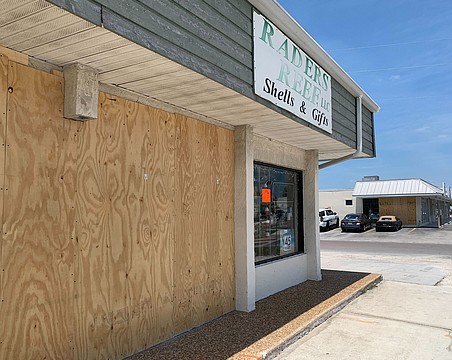The 2023 Florida Legislative session was dominated by social issues — issues that might enhance the political resume of Republican Gov. Ron DeSantis, as he prepared to run for president of the United States. Of course, some commerce bills got through, including a major tort reform bill.
The 2024 Session, scheduled to begin Jan. 9, is primed to have a more diverse list of proposed bills, many of which could have significant impact on the region's business community. While in some regards Florida is humming — the state has a budget surplus, for one — multiple issues remain thorny, from affordable housing to insurance. A look at four issues and bills expected to impact businesses in 2024 includes:
Health care
Florida Senate President Kathleen Passidomo, R-Naples,, born into a family of doctors, has been vocal about her "Live Healthy" proposals, unveiled Dec. 7, that would address a number of issues Florida faces as its population both grows and ages. Because the Senate is pushing for them, health care reforms are likely to be big priorities for the Legislature.
Passidomo, in an interview with the Business Observer, points to new residents finding a primary-care physician — not always an easy task. Passidomo is concerned too many Floridians go to an urgent-care center or, especially, an expensive emergency room, so she will try to mandate adjacent clinics in new hospitals.
The well-documented shortage of health care workers is heavy on her mind, too. Passidomo says it is a common problem in all states, but the issue in Florida, with its 1,000 new residents moving in every day, is especially acute.
"There are not enough health care workers," says Passidomo. "From technicians to brain surgeons."
Her series of bills would add more residency slots for young doctors and create new relationships with high schools, colleges and universities to see them encourage health care careers. Senators would also like to retain more doctors. Right now, the retention rate for Florida doctors who complete their residency in the Sunshine State is 75%. Not bad, but the Senate president seeks to better that.
Passidomo and State Sen. Colleen Burton, R-Lakeland, have worked on the proposals, and plan to attach numerous reforms. They include legislation for a streamlined pathway for out-of-state providers moving to Florida; a new category of teaching hospitals focused on behavioral health; and promotion of more birthing centers.
Insurance
In Tallahassee, insurance, and potential reforms, tends to follow lawmakers around like a rain cloud.
That's because Florida's homeowner insurance rates are 3.5 times the national average. Homeowners' insurance is a major vulnerability Florida has when it seeks to contrast itself with other states.
Even so, major bills are not expected on insurance reform in 2024, according to October remarks state Sen. Jim Boyd, R-Bradenton, made about reforms Florida lawmakers presented in early 2023. Recent past sessions and special sessions brought some reforms — including HB 837, with its new rules on filing deadlines and litigation costs — that sought to curb billing abuses.
The 2023 session was seen as so successful for insurance reform, says Boyd, he wants the reforms to percolate before taking further action.
"In my opinion, we swung for the fences, and we got a lot done," says Boyd, chairman of the Florida Senate Banking and Insurance committee, speaking after getting updates on insurance in October, according to the News Service of Florida.
Boyd, who owns and operates Bradenton-based Boyd Insurance and Investment Services with his son, Austin Boyd, told the committee he did not see "any additional big-deal things that we can do" during the 2024 session, according to the News Service of Florida.
Brewster Bevis, CEO of Associated Industries of Florida, a pro-business lobbying group, agrees, and says homeowners will begin to see premium decreases — even as it takes time.
"Florida will realize a lower premium rate," Bevis told the Business Observer. "You're starting to see some (insurance) carriers come back into the state."
Bevis says as many as 50,000 lawsuits got filed before the law took effect, and that clogged the system and its effect on rates, but only in the short term.
Bevis says Associated Industries, which has 400 business members, is constantly watching for legal abuses that lead to inflated insurance costs. In 2024, Bevis says, the organization will be advocating for lower automobile insurance rates.
Deregulation
Passidomo says she wants to take a look at the Department of Business and Professional Regulation, Florida's career licensing agency.
The licensing agency is "enormous," says Passidomo, a real estate attorney by trade.
The agency regulates everything from condominiums to barbers. Florida's Republican-dominated Legislature would likely relish more deregulation, but that can have unintended consequences, she says. Deregulating without study is a risk and can open the public to business practitioners who have no experience using materials that can cause harm.
One example Passidomo gave is hairdressing, and the licensing of barbers. The issue is one many states ponder. After all, barbers use scissors and electric razors and not much more. That seems odd to regulate, to some.
But Passidomo's hairdresser reminded her that hair-care workers also use chemicals that could cause burns. The agency requires barbers take courses on HIV and AIDS, given that blood can accidentally be drawn during a shave or cut.
Still, the Legislature is likely to trim away at what they see as outdated regulations in 2024.
"We're always pushing as much deregulation as we can," says state Sen. Blaise Ingoglia, R-Spring Hill, also a former state GOP chairman.
In 2024, Ingoglia, in one example, says he would like to allow nurse anesthetists to work without the supervision of a doctor, since he believes they are capable of caring for patients while the surgeons operate.
Despite some past deregulation of the agency by lawmakers and DeSantis, some dissatisfaction with the department's reach still concerns the Legislature's members, Passidomo says, and she expects lawmakers to take another look at the agency itself.
"I'd like to look at its efficiencies," says Passidomo.
The efforts have the general support of the AIF. But it's not the department it points to, but local governments that pass ordinances about worker breaks, plastic straws and even prevailing wages, according to Bevis.
Bevis told the Business Observer businesses cannot have consistency in compliance if local governments overreach.
Retail theft
Persistent and sometime organized retail theft is a problem in other states, but is it a major problem in Florida?
"I do think it's a national epidemic," says Ingoglia, who wants to make sure it is stopped in Florida. He filed a bill with state Rep. Bob Rommel, R-Naples, to enhance penalties for shoplifters and those who take part in illegal "flash mobs" — a large group of usually masked people who rush a store, steal and make frantic getaways with loads of merchandise.
The two lawmakers filed SB 824 and HB 549, proposals "requiring law enforcement to impose stern criminal penalties against mob retail theft, including restitution for the value of merchandise stolen or damaged, and the cost of repairing or replacing property damaged in the course of committing the offense."
Ingoglia, in an interview with the Business Observer, says the bill would also punish online organizers who may not physically take part in the robberies.
"This is not California," Ingoglia says, adding he blames prosecutors "who do not prosecute" for some of the issues.






